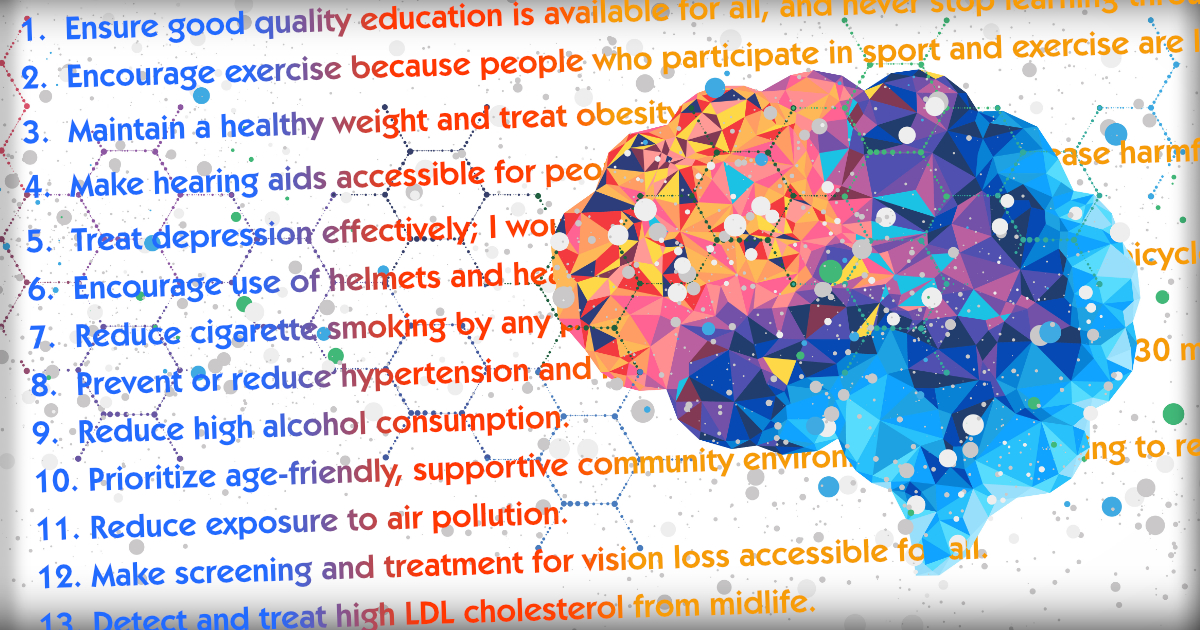Research Update: Preventing Dementia
How many of you have had this experience: “Why did I walk into this room—what was I supposed to do?” I’ll bet you begin to wonder, “Am I losing it?” I don’t think so, but just to be sure, I decided to present the Lancet Commission’s latest update for dementia prevention, intervention, and care. They’ve published a list of lifestyle habits that, based on research, are associated with preventing dementia. The 2024 report added two more lifestyle objectives.
I’ll present the 13 recommendations without saying how to achieve those habits with the latest additions at the end. For now. But over time, I’ll address those in future Memos, webinars, and audios as I review the complete research. I think it’s important to know the what to begin with. Remember, these are life-long habits.
Specific Actions to Reduce Dementia Risk
- Ensure good quality education is available for all, and never stop learning throughout life.
- Encourage exercise because people who participate in sport and exercise are less likely to develop dementia.
- Maintain a healthy weight and treat obesity.
- Make hearing aids accessible for people with hearing loss, and decrease harmful noise exposure to reduce hearing loss.
- Treat depression effectively; I would add early as well.
- Encourage use of helmets and head protection in contact sports and on bicycles.
- Reduce cigarette smoking by any practical means.
- Prevent or reduce hypertension and maintain systolic blood pressure of 130 mm Hg or less from age 40.
- Reduce high alcohol consumption.
- Prioritize age-friendly, supportive community environments, and housing to reduce social isolation by facilitating participation in activities and living with others.
- Reduce exposure to air pollution.
- Make screening and treatment for vision loss accessible for all.
- Detect and treat high LDL cholesterol from midlife.
The Bottom Line
These 13 steps to reduce the risk of developing dementia are independent of genetic factors. That makes sense; we can have the worst set of genes, but if they’re never expressed due to a good lifestyle, the development of dementia can be reduced or at least delayed. We’ll explore how we can do these things in the future, but you probably see the place to begin in several habits: Eat less. Eat better. Move more.
What are you prepared to do today?
Dr. Chet
Reference: https://www.thelancet.com/journals/lancet/article/PIIS0140-6736(24)01296-0/abstract







